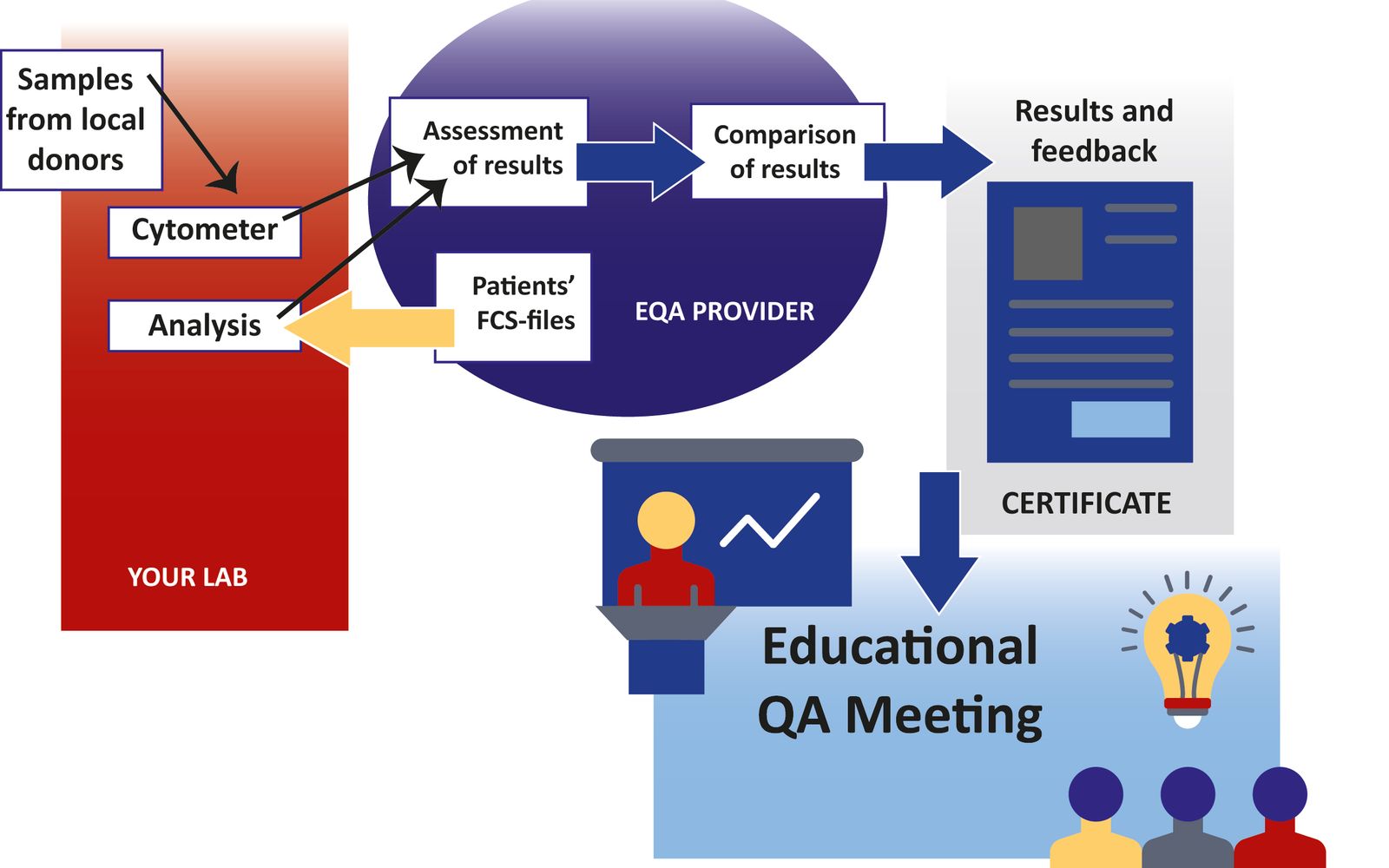News
EuroMRD Consortium Announces Two New Publications
Huge congratulations to the EuroMRD Consortium with two new publications in the field of minimal residual disease. Both benchmark manuscripts are published in the leading journal Leukemia. The first, titled ‘Analysis of measurable residual disease by IG/TR gene rearrangements: QA and updated EuroMRD guidelines’, having Vincent van der Velden as first author, describes the design and analysis of our quality assessment scheme. It reports EuroMRD’s revised data interpretation guidelines, which are based on experiences build up over the last 20 years.
The second publication, ‘The gray area of RQ-PCR-based measurable residual disease: subdividing the positive, below quantitative range (PBQR) category’, first author Michaela Kotrova, is a very useful addition to the first publication and tightens the interpretation guidelines for PBQR results and complements RQ-PCR with other methods that may overcome the limitations of PBQR results, potentially leading to a better choice of treatment.
Interested to read more? The publications have free access, you can find them in our List of Publications.
Open ESLHO Symposium on November 7th in Lisbon
ESLHO organizes the 13th ESLHO Symposium on the 7th of November in LIsbon, Portugal. At the Convento do Beato, speakers from all over the world will share their knowledge on Multi-omics approaches for diagnosis and monitoring of hematological malignancies. Participants of the 13th ESLHO Symposium will be provided with the latest updates on the development and use of multi-omics approaches for the diagnosis and monitoring of hematological malignancies.
EQA Schemes opened for registration
External Quality Assessment schemes are a tool for clinical laboratories to evaluate and manage the quality of laboratory practice with the support of an independent party.
‘Winning the poster prize is really something special’
Just as last year, Julia Böck from the University of Würzburg presented a poster at ESLHO symposium which took place last month in Salamanca, Spain. Last year she won the Special Poster Prize awarded by ESLHO. The winner is chosen after they have the opportunity to present and discuss their work to the public during a prolonged poster session at lunchtime. “I was positively surprised to win the prize last year. During the session I already received a lot of positive feedback which also led to interesting discussions. This was very helpful. When you are working on such a study, ours was about NGS panels for T-Cell diagnosis, one looks at it in a certain way. Those new insights made us rethink the way we group the data. That was very helpful.
For me the major honour came from the fact that the winner was chosen by the public, which is very knowledgeable at the ESLHO Symposium. This made it extra special to me. Being part of EuroClonality has brought so many new insights. The group is relatively small and it feels very familiar. This makes meeting the people and talking about different issues really easy. For example, discussing the results of the EQA is especially interesting to me. I personally don’t do the testing so often, and these sessions make things much clearer to me. Every time I come I learn something new.”
ESLHO Symposium in Salamanca well-attended
The annual ESLHO week took place from 5 to 12 November. In the beautiful historic city of Salamanca, Spain, participants from all three ESLHO consortia, EuroFlow, EuroClonality and EuroMRD, came to the Hospedaria Fonseca to present and discuss the status and results of their joint scientific research and EQA programs. The highlight of the week was the 12th ESLHO Symposium titled 'New Developments in flow cytometry, immunogenetics and MRD assessment', with speakers from all over the world. During the day there was a special Poster Session where visitors could stay informed of the latest developments of the laboratories involved and the entrants could win the Special Poster Prize. This year's winner was Kerry Wall with her poster entitled: ‘Molecular residual disease analysis in a high throughput laboratory setting: Can automated DNA extraction of total white blood cells effectively substitute for DNA obtained via mononuclear cell separation?’





